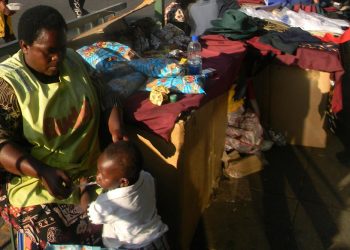Nigeria recently rebased its consumer price index (CPI) from 2009 to 2024, leading to a significant drop in the reported inflation rate from 34.80% to 24.48%.
This change has sparked discussions on the likely impact on economic planning, policy decisions, and public perception of inflation. Taiwo Odugbemi, an economist, unpacks what it means for a country to rebase its inflation rate and its implications for citizens.
What is inflation rate rebasing and how is it done?
Inflation rate rebasing follows a structured approach led by the National Bureau of Statistics to improve the accuracy of inflation measurements. Essentially what it means is that the National Bureau of Statistics expanded its data collection efforts to include a broader range of states, local government areas, and rural communities.
The recent inflation revision involved:
Updating the consumer price index basket
The bureau reviewed and changed the composition of goods and services in the consumer price index basket. The index tracks the rate at which prices change over time, monthly or annually.
These changes align the measurement of price changes with shifts in consumer spending habits.
The changes to the basket are based on the household expenditure surveys which collect information on what households consume and spend.
Categories such as telecommunications and technology were given greater weight. Less relevant items such as food and non-alcoholic beverages received reduced weighting to ensure the consumer price index accurately represents present-day household spending.
Rebasing the inflation index
The changes to the composition of the consumer price index basket require a change in the reference (base) year. The bureau has changed the consumer price index base year from 2009 to 2024.
This adjustment aligns inflation measurements with current economic realities, reducing distortions caused by outdated reference periods. To achieve this, the National Bureau of Statistics has implemented high-frequency data collection methods, such as the National Longitudinal Phone Survey, which allows for more timely assessments of economic indicators.
Adjusting weights of consumer price index components
Each part of the consumer price index was given a new weight based on updated national consumption data. Spending categories with increased significance, such as transport and digital services, were given higher weights, while categories with declining relevance such as gas and other fuels were adjusted downward.
Expanding data collection coverage
The National Bureau of Statistics improved price data collection by:
-
increasing the sample size and geographical coverage
-
increasing the frequency of data collection
-
incorporating price variations from informal markets.
The informal sector significantly contributes to Nigeria’s economy, accounting for approximately 58% of the gross domestic product (GDP).
Read more:
Nigeria’s 2025 budget has major flaws and won’t ease economic burden
What does this rate rebase mean? Is it unusual?
The rebase is a revision in the way inflation is measured. It reflects an effort to represent price movements and economic conditions more accurately.
Inflation readjustment is not uncommon among economies striving for better data accuracy. Countries such as Ghana and Kenya have undertaken similar revisions in recent years.
Ghana’s consumer price index rebasing in 2019 led to a lower reported inflation rate as it was calculated on newer spending habits.
Similarly, in 2014, Nigeria rebased its gross domestic product. This resulted in a significant revision of economic indicators.
Inflation in Nigeria reached 29.90% in January 2024. Revising how it is measured could be an attempt to capture structural economic changes more precisely.
Concerns over outdated consumer price index weights might have driven the move. The rebase could also have been done because of shifts in consumer spending, or improvements in statistical methodologies to enhance policy-making and economic planning.
The National Bureau of Statistics said the rebasing was necessary in order to reflect changes in consumption patterns.
Given Nigeria’s persistent inflationary pressures, made worse by currency depreciation and food supply disruptions, this adjustment could have significant implications for economic forecasting and policy responses.
Read more:
Nigeria’s Brics partnership: economist outlines potential benefits
What are the implications for Nigerians?
If inflation is perceived as declining, consumer confidence may improve, leading to increased spending and investment.
However, many Nigerians may still feel that the cost of living remains high, particularly as food inflation remains a major concern.
For workers and businesses, the adjustment could influence wage negotiations and pricing strategies. If inflation is officially lower, employers may resist wage increases, arguing that the real cost of living has not risen as sharply as previously thought.
Similarly, businesses may reassess pricing decisions based on the revised inflation outlook.
A lower reported inflation rate might reduce pressure on policymakers to expand social safety nets, even if citizens still struggle with economic hardship.
Read more:
Nigeria’s economy in 2025 doesn’t look bright — analyst explains why
What changes in policy can be expected?
This adjustment can alter the way monetary, fiscal and exchange rate policies are formulated.
Monetary policy adjustments
With a lower inflation rate, the Central Bank of Nigeria (CBN) may reconsider its aggressive tightening stance, which is reflected in the level it sets interest rates at.
Previously, high inflation prompted the central bank to raise the monetary policy rate to 22.75% in a bid to curb inflation. Raising the rate makes it more expensive to borrow money, so demand for goods is lower and this reduces price increases.
The revised inflation figure could justify a more measured approach to interest rate adjustments, potentially easing borrowing costs for businesses and households. This could support economic growth but must be carefully managed.
In the last Monetary Policy Committee meeting after the inflation rebasing, the committee decided for the first time in three years to pause interest rate hikes.
Fiscal policy considerations
The government may use the revised inflation data to reassess budgetary projections, wage policies, and what it spends on subsidy programmes.
A lower inflation rate could reduce the urgency for drastic public sector wage increases, though real income concerns remain.
Additionally, it might influence subsidy policies, particularly in energy and agriculture. Lower inflation could be used to justify gradual subsidy phaseouts without significant backlash.
Exchange rate management
A lower inflation rate could improve investor confidence and reduce pressure on the naira. The central bank may use this as a basis to re-calibrate foreign exchange interventions, aiming for greater currency stability.
If inflation is perceived as more controlled, capital inflows may increase, supporting the exchange rate and easing forex liquidity challenges.
Taiwo Hassan Odugbemi does not work for, consult, own shares in or receive funding from any company or organisation that would benefit from this article, and has disclosed no relevant affiliations beyond their academic appointment.
















